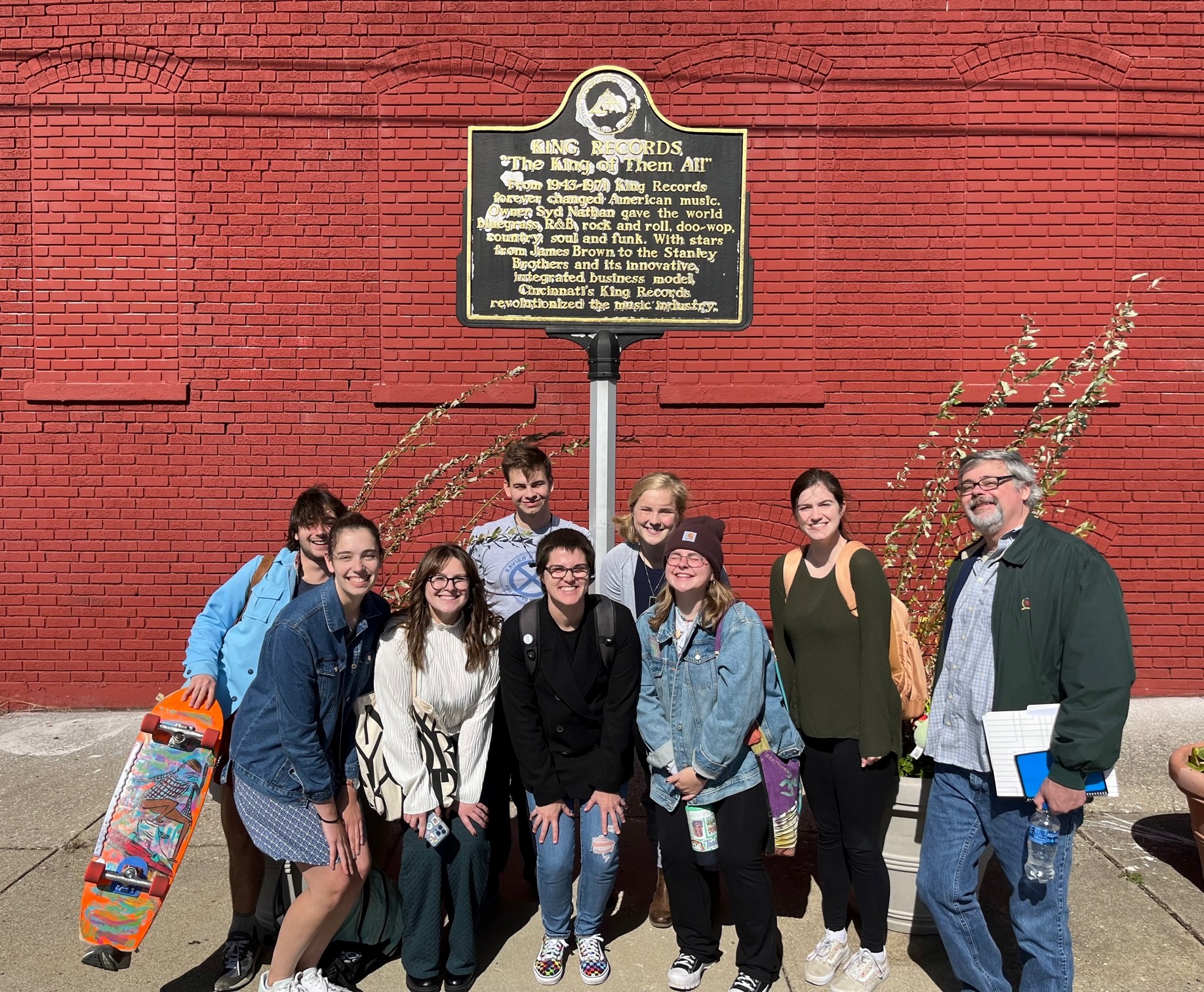ENGL-499: Community in the Queen City

ENGL-499
Dr. Graley Herren
With National Underground Railroad Freedom Center and King Studios
As they entered their final year at Xavier – and for some, their final year in Cincinnati – students in Dr. Graley Herren’s ENGL-499 senior seminar were at first challenged by the course’s focus. Each English senior seminar focuses on a different topic, and this is the first semester the course has centered around Cincinnati. This immersive course has blended class visits to the National Underground Railroad Freedom Center and the former site of King Records adjacent to Xavier’s campus. King is notable as much for the music that emanated from its studios (including James Brown, Little Willie John, and Hank Ballard’s original version of “The Twist,” as it was for being one of the first integrated record labels in the nation during its heyday from 1943-1968.
Over the course of the semester, however, Dr. Herren’s students have grown in their understanding of Cincinnati’s rich, complicated, and sometimes problematic community history, which allows them to better understand the Queen City as it operates now. This shift in perspective is the result of a carefully tailored curriculum: all of Dr. Herren’s assigned reading and listening assignments are rooted in Cincinnati and include issues of community justice such as xenophobia, Islamophobia, slavery, the reclamation of self-autonomy, and racial and religious inequity.
One theme which stood out to senior English major, Caroline Dziubek, was the importance of memory and place, specifically “how the past weaves into the patchwork of the greater Cincinnati community.” Students are required to conduct an independent research project as part of their senior seminar, and many, including Caroline, have chosen to create Cincinnati-based projects. “I think the exposure to more education about Cincinnati has deepened my respect for the city’s stories,” she says, “on the whole, I think we underestimate the good that can be found in this city.”
Such growth could not occur without a supportive classroom environment; Dr. Herren believes “Community in the classroom begins with a shared commitment to each other,” and that being in community is dependent on the idea that “we think, we talk, we listen, we learn in a safe, caring environment of mutual respect.” Caroline attests that “Whether I’m looking for academic or personal support, I know I can rely on both students and Dr. Herren to give me feedback and the resources I need to be successful.”
Caroline has also found growth in her academic mindset and abilities – while she admits that the research process used to always prove itself to be intimidating, she says “this class has reshaped my understanding of what research can look like...That research can look like joining a group of artists on a Sunday afternoon to help paint a mural.” Her most uplifting immersion-learning experience in this course was when KJ Sanchez, playwright of two nationally produced plays which Dr. Herren assigned for his course, chatted with the students during one of their class periods. Caroline notes she had “never heard research described in the way Professor Sanchez described it - as a process that should confuse, change, and persuade you - She reframed what I thought were weaknesses in my approach to research as strengths. After the meeting, I felt reinvigorated and inspired.”
If a similar immersive focus was incorporated into ENGL-499 in the future, Caroline would absolutely vouch on its behalf to other English majors. “There’s something about physically stepping into a space that teaches you more than a text ever could,” she says, adding that “We need to get Xavier students off campus and into the city. Even more so, we need to get Xavier students to talk and care about the communities around them. I think immersive learning is a great step in this direction.”